How informal innovators are shaping Africa's future
August 29, 2023
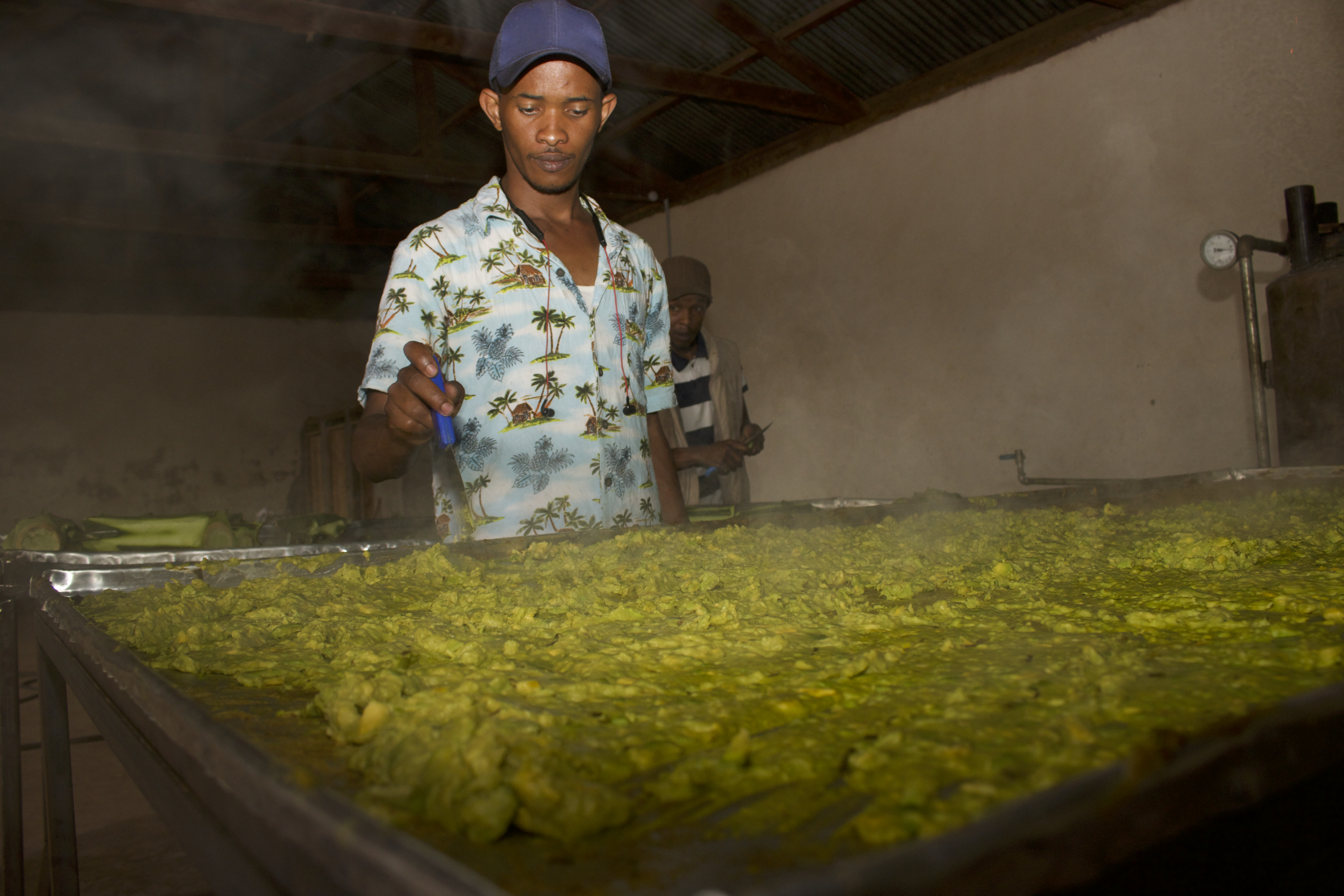
Kennedy Thiongo, of Alpine Agribuz, uses his homemade drying and steaming machine to prepare avocado for pressing.
On rainy days, Siphiwe Zuma was getting wet. When he was nine years old, an accident resulted in the amputation of his left leg and with his hands occupied by crutches he found it difficult to hold on to an umbrella during inclement weather. Facing this problem and finding nothing on the market that could address it, he took matters into his own hands and designed an umbrella backpack that operates hands-free with a retractable mechanism. He's also designed a prototype for an umbrella that can be mounted onto a wheelchair.
Like Siphiwe, informal innovators in South Africa and elsewhere are solving their own problems on a grassroots level. They are undercounted and, in many ways, underestimated. Often the path to formality is complex and out of reach, so their innovations exist in their households, communities or networks and are therefore not scaled or codified. “I looked at myself, saying, okay, what is it that I use each and every day that I can use to help me attend my classes without inconveniences. Then I designed for myself a backpack that has a retractable mechanism. I think it is worth noting that I wasn't doing that for an entrepreneurial purpose. It was really solving a solution for myself.”
Nearly one million South Africans like Siphiwe are innovating informally, in their homes, according to a recent report from the UNDP Accelerator Labs “Making the Invisible Visible: Informal Innovation in South Africa,” released in partnership with Utrecht University, the University of Johannesburg and MIT Sloan School of Management. These household innovators have solutions to known development challenges yet operate under the radar, solving problems arising in their daily lives informally. This type of innovation is demand-driven and community-driven. But while these innovators develop solutions for their everyday needs, they often resonate in the community they live in.
“I was actually told that there's a lot of people who are suffering with the same problem. They said, ‘Why don't you just turn your story into a solution for the many?’”Siphiwe Zuma, Founder of Anathoth Solutions
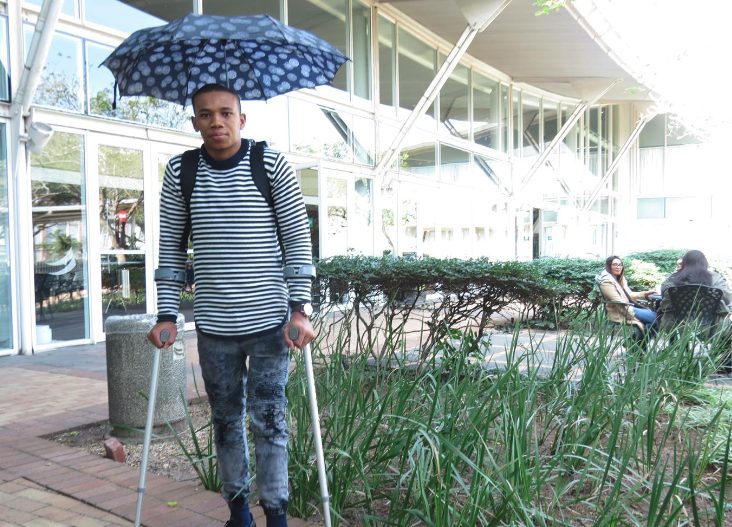
Siphiwe Zuma, Founder of Anathoth Solutions, South Africa, with a prototype of his backpack umbrella.
Siphiwe founded his company, Anathoth, with support from others who wanted to help him develop his designs and see his dream become a reality. He tells the story of a friend who came to him one day in tears. The shuttle service his friend relied upon had been cancelled during a rainstorm and he was drenched. “How far along are you with your idea?” he asked Siphiwe. For Siphiwe this was a validation of his cause and a clear indication of the problems that people with a disability face.
“[My] vision is to see my fellow brothers and sisters who are physically challenged to be able to attend classes, do their own errands, without having someone to support them or help them,” he said recently on an Instagram Live broadcast.
The innovation journey can help people understand development problems better. When we surface informal solutions from everyone, we can better understand the developmental challenges they face.
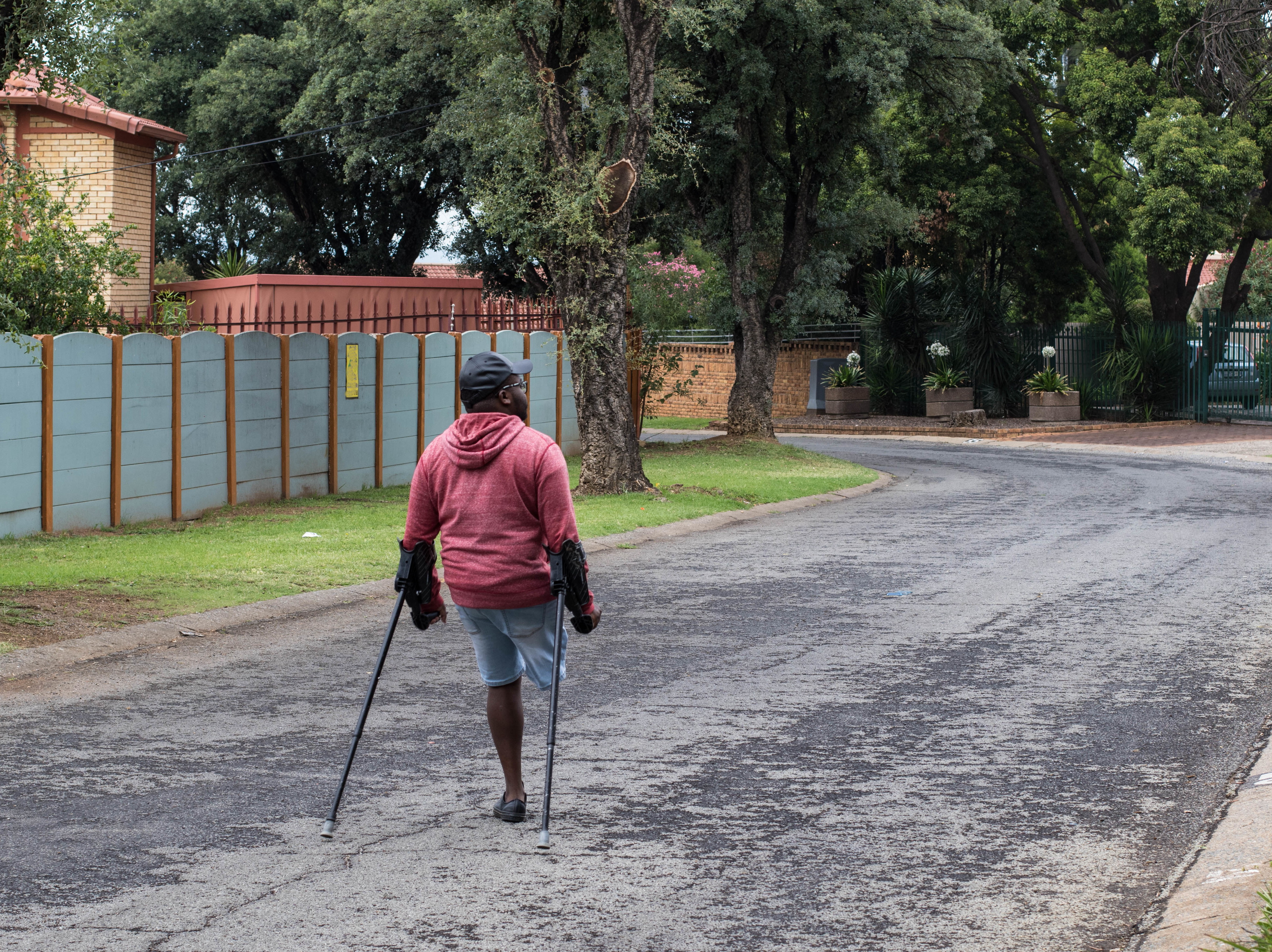
Siphwe wants to see all who are physically challenged able to attend classes, do their own errands, without having someone to support them or help them.
Motivated unknown underdogs
Kenyan engineer Kennedy Thiongo doesn’t see his avocado oil manufacturing plant as a business. He initially saw the oil pressing machine he built himself as a side hustle, but he is starting to realize that he’s done something with growth potential. He couldn’t afford to purchase the equipment to make avocado oil, so he collected scrap metal from street kids and built his own machine. He has even sold a few of the pressing machines he has made. He has no formal degree or training; he simply had an unmet need.
For Kenyan innovators, there are similar barriers to informal innovations as in South Africa. Only 40 percent of Kenyan innovators have tried to protect their innovations, according to a report from the UNDP Kenya Accelerator Lab, Mapping the Innovation Ecosystem in Kenya. Some of the reasons include a lack of proper information on intellectual property, a lengthy and time-consuming patent application process, the high cost of patents applications and maintenance, and infringement due to weak enforcement. Other actors that drive informality in the innovation space are cumbersome business registration processes, high taxes and limited opportunities for research and development.
Support for informal innovators is needed. “You can run a business informally and make it sustainable, create jobs and achieve impact,” said Savio Wambugu, founder of the Mt. Kenya Hub, an innovation centre based in Nairobi. In collaboration with UNDP, he mapped solution holders and informal innovators, including Kennedy. The Mt. Kenya Hub declares on their website, “We invest in motivated unknown underdogs.”
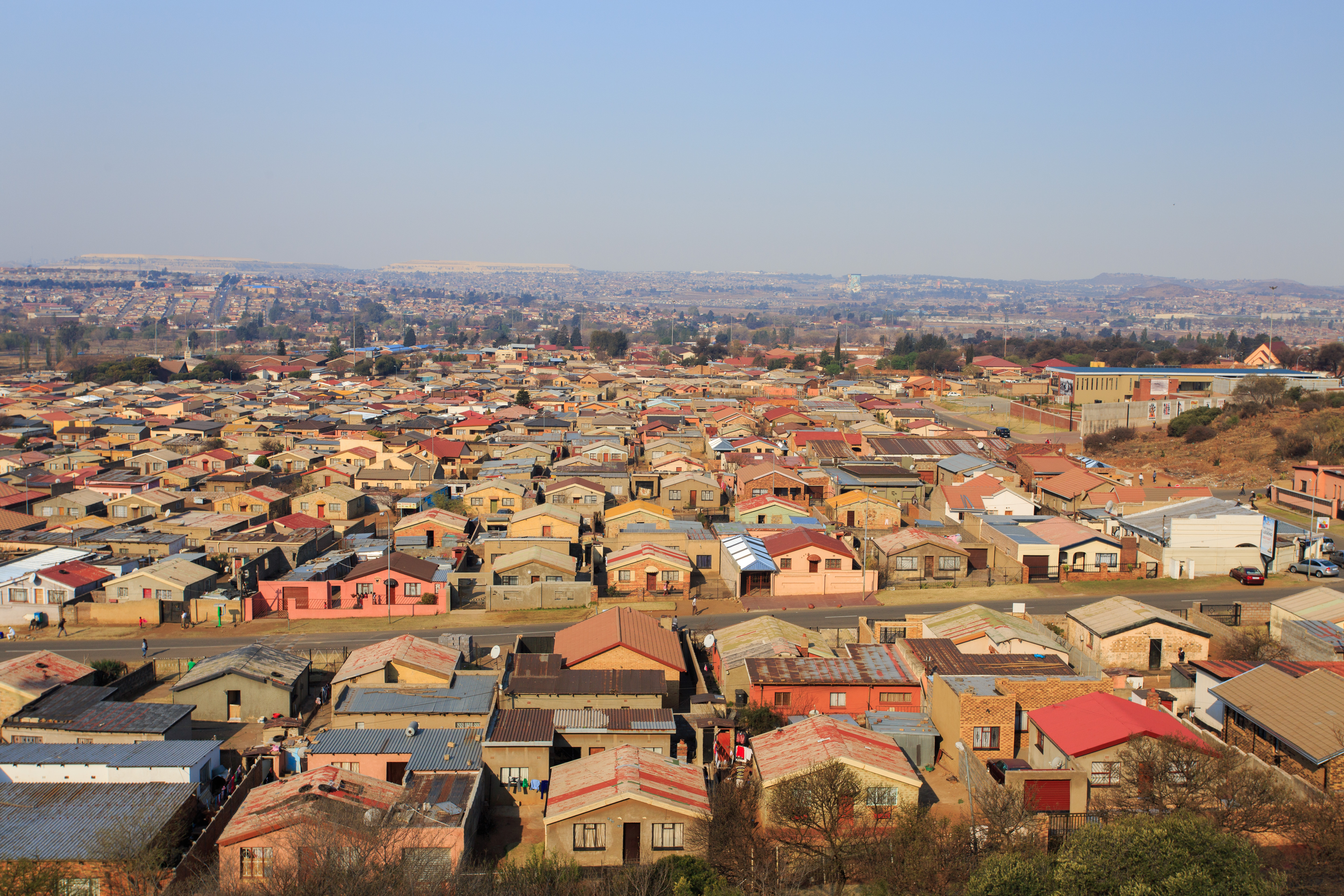
Across South Africa, and within many homes, people are taking it upon themselves to become everyday innovators and problem solvers.
Untapped potential
It is a hard fact that many innovators prove themselves in their communities but, without support, they may go no further or give up on developing their innovations. Even when their innovations have cross-border applications they often do not spread widely. The wealth of knowledge from informal innovation has significant untapped potential for change.
Nana Yaa Manu Adjei is a young Ghanaian innovator who produces organic soap from natural ingredients sourced from local plants like cinnamon, bay leaf, lemon and nutmeg. She has created jobs for over 30 women in her local community. She began informally, spurred to find a livelihood during the COVID-19 pandemic when businesses were shuttered. She returned to her family farm where they grow indigenous herbs and spices. She came up with the idea of making products out of these plants by distilling essential oils and making hand sanitizers and soaps. Hotels and guesthouses in Ghana were looking for small soaps that they could not import during the pandemic, so Nana Yaa’s informal business also addressed this need.
“We started by being able to produce about 800 pieces of the 30-gram soap a week, but now we are able to produce about 3,612 pieces every week. We started exporting mid-2023.”Nana Yaa, woman entrepreneur
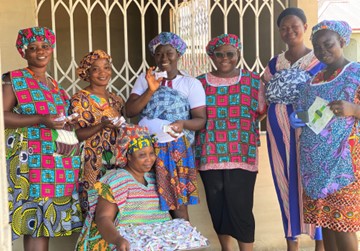
Nana Yaa Manu Adjei (middle in spectacles) with her female workers displaying soaps produced for hotels.
As a woman entrepreneur, Nana Yaa struggles to be taken seriously. “Women face unique challenges, particularly when it comes to farming and distilling your own essential oils,” she said. “People are often averse to the idea. They think it’s impossible, it’s like hard labour, so don't expect a lady to perform it.”
She entered a programme run by the UNDP Ghana Accelerator Lab and the bank Societe Generale Ghana PLC (SG Ghana), which encourages and supports innovators, especially small businesses led by youth, women and persons with disabilities. With the provided mentorship, business-to-business matching, pitching masterclasses and connections with investors and markets, Nana Yaa grew her business, Water Force Ventures, by 50 percent in just under a year. She has expanded again, and now produces cosmetics and detergent.
“We are creating employment, but we need a lot of handholding so we can do more, and better."Nana Yaa, woman entrepreneur
Staying motivated
Siphiwe, Kennedy and Nana Yaa’s innovation journey is far from over. One thing they all share is strong motivation. Siphiwe is testing his umbrella backpack prototype, incorporating feedback, creating a minimum viable product and hoping to source funding to take it to market. Most importantly, he’s not giving up.
Similarly, Nana Yaa stays motivated to overcome challenges, “Will you be able to withstand the pressure? Will you be able to withstand the stress?” she asks herself. “The associated tension is something that will always happen to women. But we will always win.”
Informal innovation is key in economies because it results in the production of cheaper products or products with new functions and helps spur the development of new industries. But these benefits to people and society are only realized if innovations are diffused and disseminated. If innovations don’t spread, people can’t benefit from them. Informal innovators still face a system that isn’t designed for individual entrepreneurs. They can’t compete against formal businesses. However, their advantage is in knowing what the problems are from direct experience. Their solutions are grounded in the reality they face.
To learn more about the UNDP Accelerator Labs, visit https://www.undp.org/acceleratorlabs

 Locations
Locations



